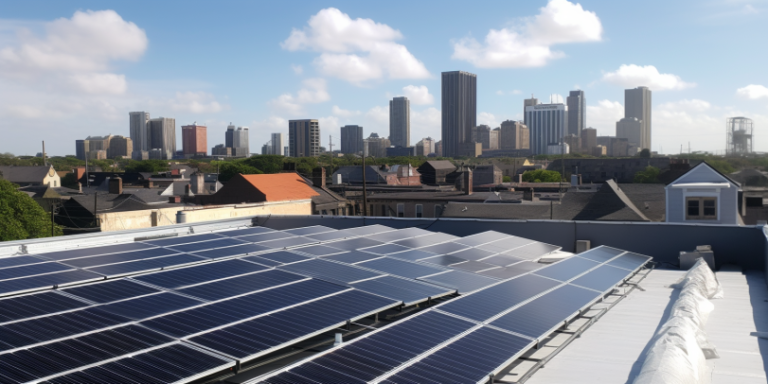In a world where the flickering flame of traditional energy sources grows dim, the sun emerges as a radiant beacon of hope for a sustainable future. Like a cosmic symphony, solar energy orchestrates a harmonious interplay of benefits and considerations that beckon us towards a cleaner, greener tomorrow.
The advantages of solar power are manifold, spanning the realms of environmental preservation, economic prosperity, and energy independence. By harnessing the sun’s abundant rays, we can curtail carbon emissions, alleviate strain on the electrical grid, and even reduce electricity bills through financial incentives.
However, amidst this solar symphony, there are considerations to heed. The upfront investment cost and the need for energy storage devices pose challenges, while the limited lifespan and nocturnal dormancy of solar panels necessitate judicious decision-making.
Nevertheless, as the solar industry burgeons and the United States basks in significant solar generation capacity, solar energy illuminates a promising path towards a sustainable and prosperous future.
Key Takeaways
- Solar energy reduces carbon emissions and lessens the strain on the electrical grid.
- It can generate electricity in any climate and can benefit from light to moderate snowfall.
- Solar energy diversifies the energy grid, prevents power failures, and allows residents to sell excess energy to the grid and get compensated.
- Solar panels have a significant upfront investment cost but provide long-term returns, with an average lifespan of 25 to 30 years.
Benefits of Solar Energy
Solar energy offers numerous benefits, including reducing carbon emissions, lessening strain on the electrical grid, generating electricity in any climate, saving money by lowering or eliminating electricity bills, and providing financial incentives through Solar Investment Tax Credits (ITC).
It is a sustainable and renewable source of energy that has the potential to significantly reduce greenhouse gas emissions. Solar panels can be installed in various locations, allowing for the generation of electricity in any climate, including rainy, snowy, or cloudy conditions.
Additionally, homeowners can save money by lowering their electricity bills and even receive compensation by selling excess energy back to the grid. However, it is important to consider the initial installation costs of solar panels, which can be expensive.
The long-term returns and environmental benefits make solar energy a promising option for a sustainable future.
Considerations for Solar Panels
One important aspect to keep in mind when evaluating the use of solar panels is the need for energy storage devices for off-grid homes. Solar panels require sunlight to generate electricity, which means they do not work at night. To ensure a continuous power supply, off-grid homes need to invest in energy storage devices such as batteries. These devices store excess solar energy during the day and release it when the panels are not producing electricity. Additionally, it is crucial to consider the lifespan of solar panels. On average, solar panels have a lifespan of 25 to 30 years. While they provide long-term returns, they require a significant upfront investment cost. Therefore, thorough research and informed decision-making are necessary to assess the cost-effectiveness and benefits of solar panels.
| Energy Storage Devices | Lifespan of Solar Panels | Cost-effectiveness |
|---|---|---|
| Batteries | 25 to 30 years | Long-term returns |
Solar Industry Facts
The growth of the solar industry can be attributed to the creation of the Solar Investment Tax Credit through the Energy Policy Act, leading to a significant increase in solar generation capacity in the U.S.
As of the end of 2020, the U.S. had 97.7 GWdc of solar generation capacity online. This growth in capacity has been a result of the increasing adoption of solar energy as a sustainable and renewable source of power.
Solar panels have the ability to generate electricity in any climate, including rain, snow, or light hail, making them a reliable option for power generation.
The solar industry’s expansion has been driven by advancements in technology, decreasing costs, and the environmental benefits associated with solar energy.
The continued growth of the solar industry is crucial for a sustainable future and reducing reliance on fossil fuels.


